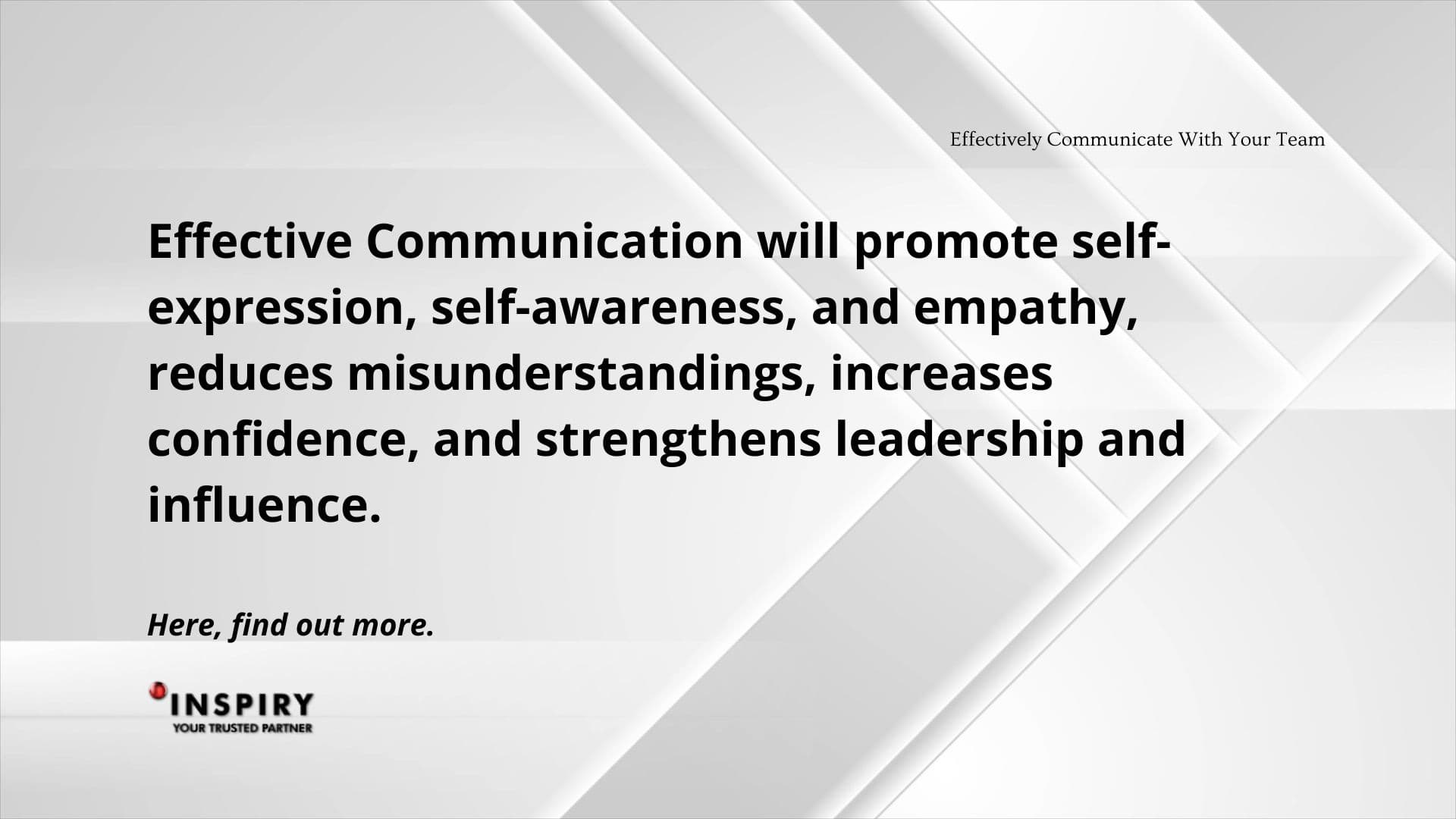
Blog Detail
Effectively Communicate With Your Team

When two or more people exchange information in a clear, brief, and meaningful way, it is said to be effective communication. It entails precisely and effectively ideas, thoughts, and emotions exchange processes to promote understanding and carry out a task. Nonverbal cues such as body language, facial emotions, and voice tonality are all part of effective communication. Active listening, clear communication, and adjusting one's communication style to the audience's needs are all part of it. Fundamentals components of effective communication that leaders should know are listed below:
Clarity: Communication should be direct, coherent, and simple enough for the audience to understand. Try to avoid jargon and complicated words.
Listen actively: This is when you pay attention to what the speaker is saying, concentrate on what they are saying, and, as needed, offer your thoughts or ask questions to get more information.
Establish trust by communicating openly and truthfully: Be upfront about triumphs and mistakes and share pertinent information, even if it is difficult. Avoid keeping things from others or making promises you can't accomplish.
Develop a specific communication style: To socialize with various people and circumstances, you should modify your communication style. Think about your team members' tastes and needs, and adjust your strategy as necessary. Face-to-face communication may be preferred by some. On the other hand, others would rather have written communication or group discussions.
Be brief and direct: Show respect for other people's time by conveying your message in a brief, unambiguous manner. Expectations, objectives, and next steps should all be made very clear.
Visuals and narrative: To effectively communicate with your team, use visuals and storytelling. Visuals may help people understand complex topics, while stories can assist explain important ideas and making them more memorable.
Pay attention to your body language, facial expressions, and tone of voice as well as other nonverbal indicators you may be using. Watch your body language to make sure it conveys the message you want. Maintain eye contact, project a kind demeanor, and move with confidence.
Give your team members regular feedback and acknowledgment: Be sure to let them know when they've done a good job. Recognize their accomplishments and contributions while providing them with constructive criticism to help them develop. As a result, the workplace is encouraged to be joyful and effective.
Benefits you will gain from Effective Communication:
There are numerous advantages of effective communication in the spheres of life, including personal relationships, work environments, and larger societal interactions. Effective communication is substantial for strengthening relationships and enhancing collaboration, teamwork, productivity, efficiency, and overall performance. It promotes self-expression, self-awareness, and empathy, reduces misunderstandings, increases confidence, and strengthens leadership and influence. Effective communication reduces the likelihood of misunderstandings, increases confidence, and fosters a positive and inclusive culture.
Influential leaders possess strong communication skills, which help them gather followers, influence results, and lead successfully. Creating an environment where everyone feels heard, appreciated, and included fosters a positive and inclusive culture, promoting collaboration and innovation. Keep in mind that effective communication is a process that calls for constant practice and effort. You may motivate and enlist the help of your team, forge enduring bonds with coworkers, and promote organizational success by emphasizing communication and constantly enhancing your communication abilities.
Need Effective Communication Training? Contact us here
Salam Inspirasi,
apt. Syifa Amirta Sani, S.Farm
